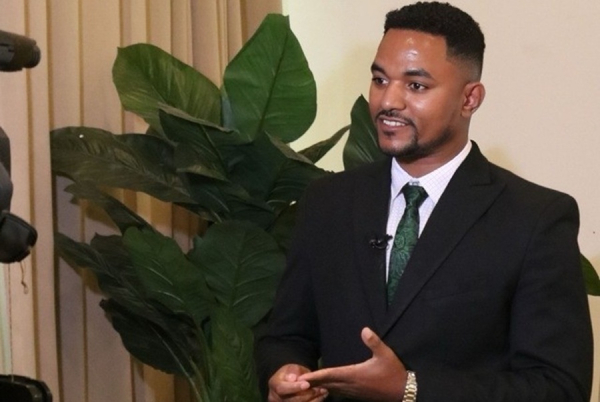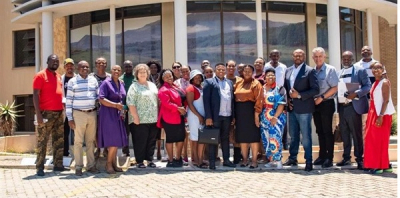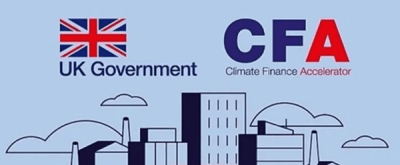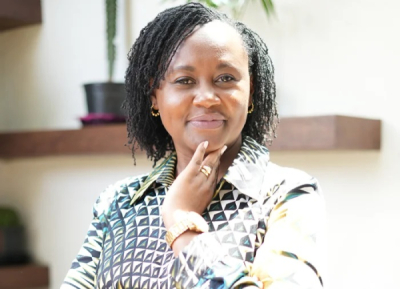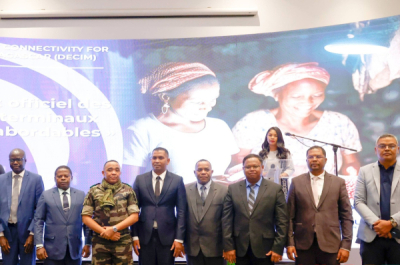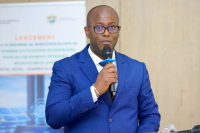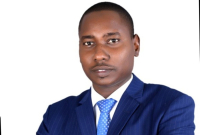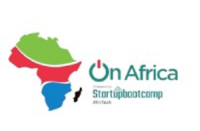- Daniel Bekele co-founded Ashewa Technology in 2020 to support SME digital transformation in Ethiopia.
- The company offers solutions including Nehabi, Smart ERP and the e-commerce platform Ashewa.com.
- Ashewa Technology targets private firms, large corporations and public institutions.
Ethiopian entrepreneur Daniel Bekele co-founded and leads Ashewa Technology as Chief Executive Officer. He supports small and medium-sized enterprises, large companies and public institutions in their digital transition.
Founded in 2020, Ashewa Technology positions itself as a strategic partner for professionals seeking to modernize operations, improve efficiency and access new markets through digital tools designed for the African context.
The company develops several technology solutions. Through Nehabi, it enables businesses to create showcase or professional websites without programming skills. It also offers Smart ERP, a management software solution that helps organizations of all sizes track activities, structure operations and support growth.
Through its e-commerce platform Ashewa.com, Ashewa Technology facilitates the buying and selling of products in Ethiopia. The platform aims to simplify trade and unlock new commercial opportunities. The company has also developed Hybrid Learning, a solution that modernizes education by combining digital tools with structured pedagogical approaches.
In addition, Ashewa Technology designs customized web and mobile applications tailored to the specific needs of private enterprises and public organizations. The company also provides domain name registration and hosting services to ensure stable and high-performance online deployment of websites and applications.
Daniel Bekele earned a diploma in software development and digital marketing in 2019 from Ubunifu College in Kenya. He also obtained an advanced national diploma in e-commerce and artificial intelligence in 2021 from Indian Technology College. In the same year, he earned a diploma in education with a specialization in business operations management and artificial intelligence from ASEAN Online Education.
He began his career in 2015 as a sales and digital marketing specialist at JTMM Africa, a trading company. In 2016, while studying in Kenya, he developed a lead generation tool called UBU. In 2018, he joined Kiyaye as a software developer, contributing to the development of its website and social networking application.
This article was initially published in French by Melchior Koba
Adapted in English by Ange J.A de Berry Quenum
MarkHack 5.0 will be held in Lagos on 5 June 2026. The conference, themed “The Culture Algorithm: AI and the Human Experience,” will bring together marketers, content creators, startup founders and policymakers to explore how artificial intelligence is reshaping culture, media and everyday life. The programme includes keynote speeches, panel discussions, a hackathon and demonstrations of emerging AI-driven solutions.
The 2026 National Cleantech Innovation Challenge seeks local solutions to South Africa’s energy, climate-related and economic-development objectives. The competition comprises nine province-level challenges, spanning regenerative agriculture, sustainable transport and renewable energy. It is open to innovators, small and medium-sized enterprises and research teams. Apply via the NCIC website by 21 April 2026.
Kenyan entrepreneurs developing emission-reduction solutions can now apply to the Climate Finance Accelerator to make their projects investment-ready. Funded by the UK government, the program provides technical support, strengthens funding proposals, and connects projects with investors, with a particular focus on those seeking more than $3 million. Applications close on March 11, 2026.
- VunaPay enables near-instant payments to farmers upon delivery of produce, reducing delays that can last months.
- The Nairobi-based start-up integrates inventory, producer tracking and real-time record management for cooperatives.
- The company operates in coffee, maize and dairy value chains and plans regional expansion.
In many agricultural value chains, farmers deliver produce to cooperatives and wait several months for payment while buyers sell the harvest. VunaPay has introduced a near-instant payment system that triggers compensation as soon as farmers deliver their products. The model improves producers’ financial stability and reduces cash-flow uncertainty.
Founder Gatwĩri Njogu-Mokaya launched VunaPay in 2023 and based the company in Nairobi. The start-up combines digital payment tools with inventory management, producer tracking, delivery registration and real-time record keeping for agricultural cooperatives. The platform aims to strengthen transparency and reduce administrative inefficiencies across agricultural value chains.
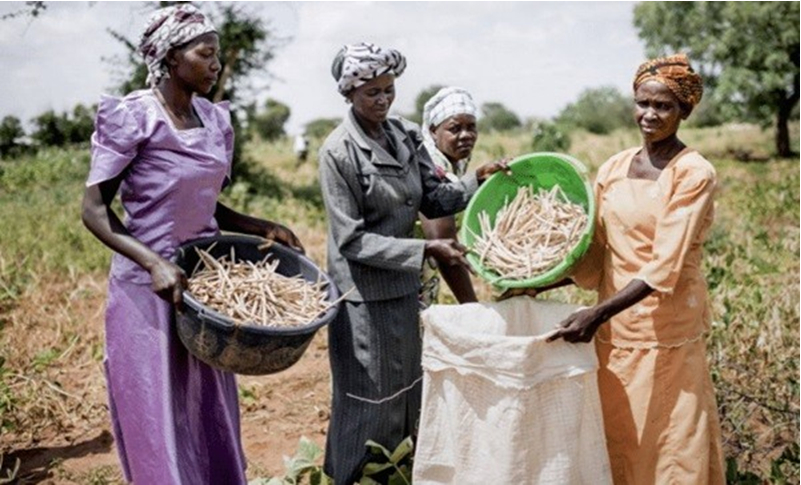
VunaPay connects farmers, cooperatives and financial institutions through a single digital interface. The company secures production data and transaction records to facilitate faster income access for producers and improve operational management for agricultural organizations.
The start-up operates within East Africa’s growing agri-fintech segment, where digital innovations seek to modernize a sector still dominated by manual processes. VunaPay has onboarded several cooperatives active in coffee, maize and dairy value chains. The company plans to expand its model into additional regions.
Faster payments reduce farmers’ reliance on informal debt and enable better planning of agricultural activities. By combining finance, data and farm management tools, VunaPay illustrates a new generation of African ventures that link digital innovation with rural financial inclusion.
This article was initially published in French by Adoni Conrad Quenum
Adapted in English by Ange J.A de Berry Quenum
-
The government launched a subsidized sale of 664,000 digital devices, including 400,000 reserved for women and girls.
-
Authorities financed the scheme under the $24 million DECIM fund to expand affordable access to digital equipment.
-
Only 18.7% of the population used the Internet in 2024, highlighting a wide digital gap.
Officials officially launched on February 21 a national program to sell 664,000 subsidized digital devices. The program allocates 400,000 units to women and girls. The initiative seeks to expand access to digital terminals, reduce the digital divide, and strengthen sustainable digital inclusion, particularly for women and youth.
The government has structured the program around a network of nine contracted official distributors to ensure process transparency, equipment accessibility and gradual nationwide coverage, including rural areas. Authorities have integrated the initiative into the “Affordable Digital Equipment” subcomponent of the $24 million Digital and Energy Connectivity for Inclusion in Madagascar (DECIM) fund.
Authorities first unveiled the program in April 2025 as part of a broader strategy to support socio-economic development through digital transformation. The Digitization Strategic Plan (PSN) 2023–2028 frames this strategy and sets a roadmap to position Madagascar as a leading player in Africa’s digital economy. The plan emphasizes telecommunications development, e-government and digital inclusion. Authorities expect the digital sector to contribute 6% to GDP by 2028, compared with 1.5% in 2019.
However, Madagascar continues to face a pronounced digital divide. According to the International Telecommunication Union (ITU), only 18.7% of the population used the Internet in 2024. The World Bank estimates the population at 32.9 million. The GSMA notes that smartphone affordability remains a major barrier to Internet adoption, even in areas already covered by networks, despite devices now retailing for under $100.
At the same time, the scale of the initiative remains modest relative to the population still excluded from digital services. Authorities have not announced subsequent phases or a precise timeline for expansion.
Access to smartphones alone does not guarantee adoption and effective use of digital services. Network coverage also constrains inclusion. ITU data show that 2G and 3G networks covered 88.5% and 69.2% of the population respectively at end-2023. Meanwhile, 4G coverage reached 34.6% in 2024, and 5G covered only 6.12%. High Internet costs, limited digital skills, security concerns, connectivity quality and the perceived relevance of digital services for some communities further limit uptake.
Digital infrastructure can unlock productivity gains, but hardware subsidies represent only one piece of a broader structural equation that includes connectivity, affordability and trust in digital ecosystems.
Isaac K. Kassouwi
-
Authorities launched an online platform to process VAT, banking tax and customs duty exemptions for renewable energy equipment.
-
Importers can now submit and track applications digitally through a system developed with the Single Window for Foreign Trade.
-
Ivory Coast targets 42% to 45% renewable energy in its power mix by 2030.
The Ivorian administration has intensified its transition toward e-government. Authorities have expanded digital public services, including recently launched sectoral platforms, as part of a strategy to modernize public action and facilitate user access to administrative procedures.
#Économie | Modernisation de l'administration énergétique: la plateforme digitalisée de demande d'Attestation d'Exonération de la TVA officiellement lancée
— Gouvernement de Côte d'Ivoire (@Gouvciofficiel) February 21, 2026
Abidjan, le 20 février 2026- Le directeur général de l'Énergie, Narcisse Kalifa Éhouman, a lancé officiellement, le… pic.twitter.com/WkzpBQLmz4
The Directorate General of Energy launched on February 20 in Abidjan an online platform dedicated to applications for exemptions from value-added tax (VAT), the banking operations tax (TOB) and customs duties on renewable energy equipment. Officials designed the initiative to simplify administrative procedures, reduce processing times and secure the review of files linked to clean energy investments.
Director General of Energy Narcisse Kalifa Éhouman stated that the platform represents a major step forward in the digital transformation of the energy administration. “Thanks to this platform, developed in close collaboration with the Single Window for Foreign Trade, importers will now be able to submit their applications online, track the progress of their files in real time, and interact with the administration in a more fluid, efficient, and transparent manner.” he explained.
Authorities expect the digitalization of these procedures to shorten review times, improve traceability of administrative decisions and strengthen the reliability of file assessments. By centralizing exemption requests, the government aims to lower investment costs for solar, wind and hybrid projects while providing a clearer operational framework for industry players.
The launch forms part of Ivory Coast’s broader strategy to modernize public administration through the dematerialization of services. In recent years, authorities have accelerated digitalization by automating foreign trade formalities, expanding online tax services and gradually integrating digital tools into the management of economic public services.
The initiative coincides with the acceleration of the national energy transition. Ivory Coast aims to raise the share of renewable energy in its electricity mix to between 42% and 45% by 2030. Authorities are developing several solar and energy infrastructure projects to support growing electricity demand.
The digitalization of exemptions for renewable energy equipment aligns with a wider e-government drive to enhance administrative transparency, improve the business climate and facilitate private investment. The Ivorian state plans to progressively extend dematerialization to other sectoral procedures, enabling centralized and online monitoring of applications.
This article was initially published in French by Samira Njoya
Adapted in English by Ange J.A de Berry Quenum
-
Brahim Moussa Hassane co-founded Konoom Mobile Money in 2025 to provide fully digital financial services in Chad.
-
The platform enables real-time transfers, bill payments and government tax payments without requiring a traditional bank account.
-
Konoom targets both individuals and businesses to expand financial inclusion nationwide.
Brahim Moussa Hassane co-founded and leads Konoom Mobile Money as chief executive officer. The fintech company specializes in electronic money payments and serves both individuals and businesses.
Founded in 2025, Konoom Mobile Money operates a fully digital financial services platform. The platform allows users to send, receive and pay money without relying on a traditional bank. The company aims to give every Chadian the ability to manage daily finances independently, regardless of geographic location or access to conventional banking services.
The platform processes real-time money transfers across multiple channels, including Konoom wallets, bank accounts and agent outlets. It enables users to pay utility bills such as electricity, water, television and telecommunications, along with other essential services, through a single interface. It also allows users to pay government taxes and duties directly from the wallet through a secure portal.
Konoom Mobile Money relies on a digital wallet that allows users to deposit, store, send and withdraw funds. The wallet functions as a central tool for managing daily expenses without requiring a bank account. Users can fund the wallet through bank transfers, an agent network or mobile money channels, and the system makes funds immediately available for transactions.
Brahim Moussa Hassane graduated from the Université catholique de l’Afrique de l’Ouest (UCAO) in Senegal in 2013 with a bachelor’s degree in accounting and finance. He later earned a master’s degree in investment and corporate governance, with a specialization in financial engineering, in 2015 from Groupe ISM in Dakar.
He began his professional career in 2014 as a consultant at MCG Afrique. He joined Orabank in Chad from 2018 to 2021, where he served as a credit risk analyst and later as head of the standardized credit processing unit.
This article was initially published in French by Melchior Koba
Adapted in English by Ange J.A de Berry Quenum
- PAL operates as a Côte d’Ivoire-based fintech founded in 2021 that enables multi-currency payments and transfers across African countries.
- The company provides instant transfers to mobile wallets, bank accounts and merchant wallets through a centralized multi-currency account.
- PAL offers online foreign exchange services and unsecured short-term liquidity support to businesses and independent workers.
Dady Emmanuel Ulrich Ismael is a Beninese-Ghanaian serial technology entrepreneur. He co-founded and leads PAL as chief executive officer. The startup operates from Côte d’Ivoire and facilitates money transfers and payments for businesses and independent workers.
PAL launched in 2021 as a fintech platform targeting African companies, money transfer operators and payment providers. The company enables clients to send, receive and convert funds across multiple African countries. The solution also serves freelancers and mobile money agents who require rapid liquidity for daily operations.
PAL provides users with a multi-currency account and wallet that allows them to hold several African currencies in a single interface. Users can send funds instantly from this wallet to mobile money accounts, bank accounts or merchant wallets. The PAL account functions as a central hub where clients receive, store, convert and redistribute funds without relying exclusively on traditional banking channels.
In addition, the platform offers an online foreign exchange service that it describes as fast and competitively priced. The service facilitates currency exchanges between African currencies and supports cross-border trade flows.
When clients face cash flow constraints, PAL provides immediate funding without requiring collateral. The company positions this service as a tool to ensure business continuity and operational stability.
Beyond PAL, Dady Emmanuel Ulrich Ismael serves as co-chief executive officer of Noworri, a fintech solution that connects buyers and sellers of cryptocurrencies.
He founded his first company, Bourseafrique, in 2016 and led it until 2019. The platform sought to democratize investment and extend access to individuals without bank accounts.
He earned a bachelor’s degree in accounting and business management from University of Abomey-Calavi in 2014. He completed an internship as an accounting assistant at School of African Heritage in 2016.
This article was initially published in French by Melchior Koba
Adapted in English by Ange J.A de Berry Quenum
OnAfrica Angel Syndicate is inviting high-potential tech startup founders based in Africa, or building solutions for the African market, to apply. The investor group primarily backs companies at the seed stage, providing capital as well as access to its network, community and strategic guidance. Applications must be submitted online through a dedicated form.
More...
Paradigm Initiative has opened registration for the 2026 Digital Rights and Inclusion Forum (DRIF), scheduled for April 14-16 at the Radisson Blu Hotel in Abidjan. The 2026 edition will be the first to take place in a French-speaking country. Held under the theme “Building Inclusive and Resilient Digital Futures,” the forum will convene policymakers, civil society actors, and industry leaders to discuss issues including artificial intelligence, data protection and digital inclusion.
OpenAI is developing a suite of smart devices, including a speaker, glasses and a lamp, aimed at embedding its AI more deeply into everyday life. The speaker, equipped with a camera to enable context-aware responses, is expected to sell for between $200 and $300 and launch in 2027. The smart glasses are not expected before 2028.
- Mauritania launches “Ijraati” portal consolidating over 800 procedures
- Platform centralizes services, supports full digitization roadmap
- Country ranks 165th in UN 2024 e-government index
The Mauritanian government launched a digital platform for administrative procedures earlier this week. Named "Ijraati," the portal consolidates more than 800 processes into a single centralized directory of administrative procedures for citizens, investors and businesses, as part of the country’s broader public administration digitization strategy.
According to the Ministry of Digital Transformation, Innovation and Modernization of Administration, "Ijraati" allows users to consult required documents, processing times and the relevant agencies. The platform also includes an administrative dashboard and tracking tools to help ensure procedures remain up to date.
At the launch workshop, Minister Ahmed Salem Ould Bede said the official launch of the national administrative procedures portal "Ijraati" marks a key step in modernizing public administration, according to the Mauritanian Information Agency (AMI).
He outlined a three-phase roadmap: centralizing all procedures on a unified national platform; continuously updating them and ensuring data reliability in coordination with relevant ministries; and fully digitizing the most frequently used services and integrating them into the "Khdamati" platform so that transactions can be completed remotely, within set deadlines and with full transparency.
Several services have been added in recent months, including student enrollment at the University of Nouakchott; the Digital Road Traffic System (SNTR); investor services such as company registration and investment code approval applications; criminal record certificates; vehicle registration documents; certificates of loss for official documents; and services from the Mauritanian Electricity Company (SOMELEC).
These efforts come as the government steps up initiatives to position digital technology as a driver of socioeconomic development. In January 2025, it launched the "Digital-Y" project, backed by four million euros in funding through a partnership with German development cooperation. The project aims to further integrate digital tools into public administration to modernize services and strengthen administrative transparency.
Mauritania currently ranks 165th globally in the United Nations’ 2024 E-Government Development Index (EGDI), with a score of 0.3491 out of 1, below both the African and global averages. Among the index’s three sub-indices, the country records its lowest score in online services, at 0.1688 out of 1.
On cybersecurity, Mauritania falls within the fourth and second-to-last tier of the International Telecommunication Union’s (ITU) Global Cybersecurity Index 2024. The ITU notes a relatively solid performance on the legislative front but identifies room for improvement at the organizational, technical, capacity-building and cooperation levels.
Availability vs. adoption
The faster rollout of digital services nonetheless raises questions about real-world uptake and whether the administration is effectively reaching the population it aims to serve. According to the ITU, 2G coverage reached 97% of the Mauritanian population in 2023. In 2022, 3G and 4G networks covered 43.9% and 34.7% of the population, respectively.
Beyond network coverage, adoption depends on access to compatible devices such as smartphones, computers or tablets. Some 56.61% of Mauritanians aged 15 and older owned a smartphone at the end of 2024, according to the World Bank.
Other factors also shape usage, including the affordability of telecom services, digital literacy, service quality and public trust in government platforms. Mauritania had approximately two million internet users at the end of December 2025, representing a penetration rate of 37.4%, according to DataReportal.
Isaac K. Kassouwi
- Interpol arrested 651 suspects and recovered more than $4.3 million during Operation Red Card 2.0.
- Authorities identified 1,247 victims and estimated losses at more than $45 million.
- Cybercrime accounts for over 30% of reported offenses in parts of West and East Africa, Interpol says.
Interpol said it arrested 651 people and recovered more than $4.3 million during Operation Red Card 2.0, which authorities conducted between Dec. 8, 2025 and Jan. 30, 2026 across 16 African countries.
Interpol said law enforcement agencies targeted infrastructure and actors behind high-yield investment scams, mobile money fraud and fraudulent loan applications. Authorities identified 1,247 victims and estimated total losses at more than $45 million.
“These organized cybercriminal syndicates inflict devastating financial and psychological harm on individuals, businesses, and entire communities with their false promises. Operation Red Card underscores the importance of collaboration in the fight against transnational cybercrime.” said Neal Jetton, director of cybercrime at Interpol.
Officials carried out targeted operations in several countries. In Nigeria, law enforcement agencies closed more than 1,000 fraudulent accounts and confiscated a residential property that suspects used as an operational base. In Kenya, officers arrested 27 people linked to fraudulent investment schemes that perpetrators promoted through messaging platforms and social networks, where they lured victims with false returns and falsified account statements. In Côte d’Ivoire, authorities arrested 58 people and seized 240 mobile phones, 25 laptops and more than 300 SIM cards during an operation that targeted mobile loan fraud affecting mainly vulnerable populations.
Interpol said Operation Red Card 2.0 followed an earlier phase conducted between November 2024 and February 2025. Authorities arrested about 300 cybercriminals and seized nearly 2,000 devices in seven African countries during the previous operation. Authorities also recorded several thousand victims of mobile banking scams, fraudulent investments and messaging-based fraud.
Interpol said the latest operation took place against a backdrop of rising cybercrime across Africa. The organization attributed the surge to rapid digital adoption and gaps in legal frameworks, training and technical resources. According to Interpol’s African Cyberthreat Assessment Report, cyber-related crime now accounts for more than 30% of reported offenses in some parts of West and East Africa, while most countries call for significantly stronger enforcement capacity.
Financial losses linked to cybercrime also threaten African economies. Estimates compiled from international reports show that cybercrime cost various countries on the continent at least $3 billion between 2019 and 2025. Analysts said total costs likely exceed that figure when they include indirect losses such as productivity declines, reputational damage and system recovery expenses.
Samira Njoya


